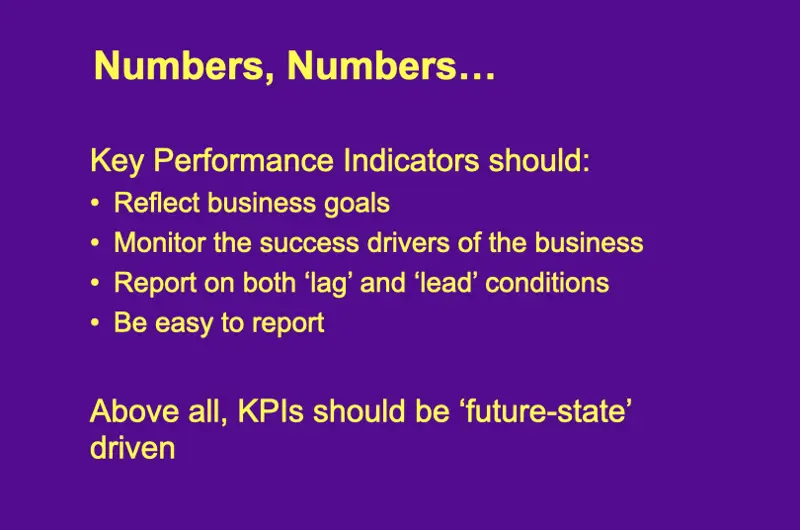Numbers, Numbers...

A business is set to work to a sound and well-defined strategic plan. It has a powerful core purpose, its business objectives and tactics are clearly defined. Management is working hard to implement initiatives in operations, marketing, finance and staff. They’re pleased with the way the business seems to be developing.
Unfortunately, the key word there proves to be 'seems'. Why?
You would not want to drive your car at high speed without a dashboard full of instruments and indicators reporting the state of various parameters and systems in the car as well as of course, its velocity. But yet, a surprisingly large number of businesses operate without a well defined performance monitoring process let alone key performance indicators that measure their movement towards success.
Failure is nobody's goal, but it's all too easy to achieve if you don't have accurate quantifiable measurements that reflect your organisation's critical success factors in moving towards a future state. What you measured yesterday may not be relevant today or tomorrow. After all, you wouldn't drive a car at speed if your windscreen was fogged over and the only other indication of forward movement came from the rear view mirror...
Many areas in a business are easily measured, but ease of measurement is necessarily key to business success. When selecting key performance indicators, it is vital to limit them to those that are instrumental in reaching the goals of the business.
Implemented correctly, Key Performance Indicators work not only as a vital performance management tool but also as an incentive mechanism. Broadcast KPIs throughout the organisation - both the targets and the progress toward those targets - and see how powerful a motivator they can be for moving the business forwards.
That's why the term “Key Success Indicator” may be a more effective term.
